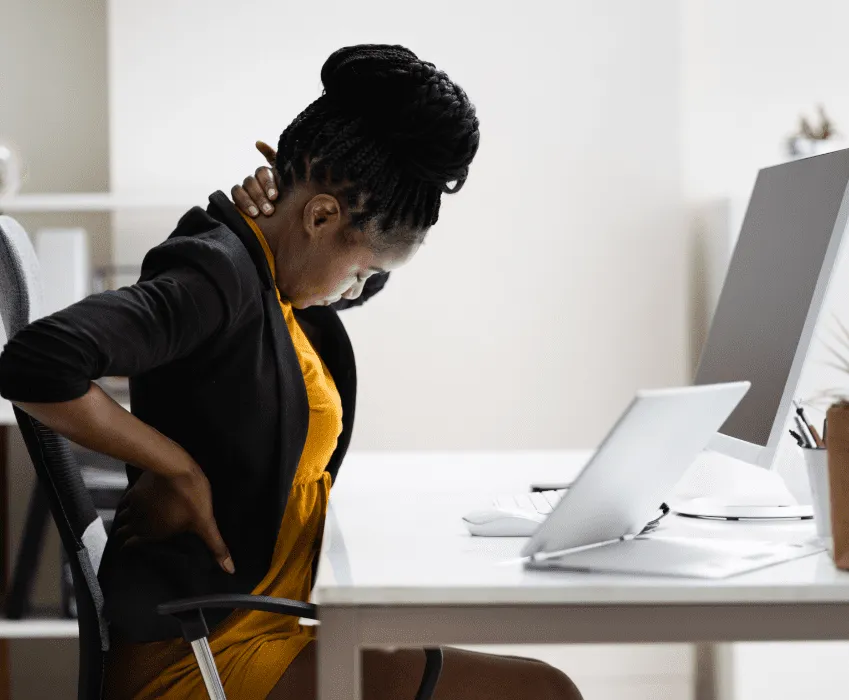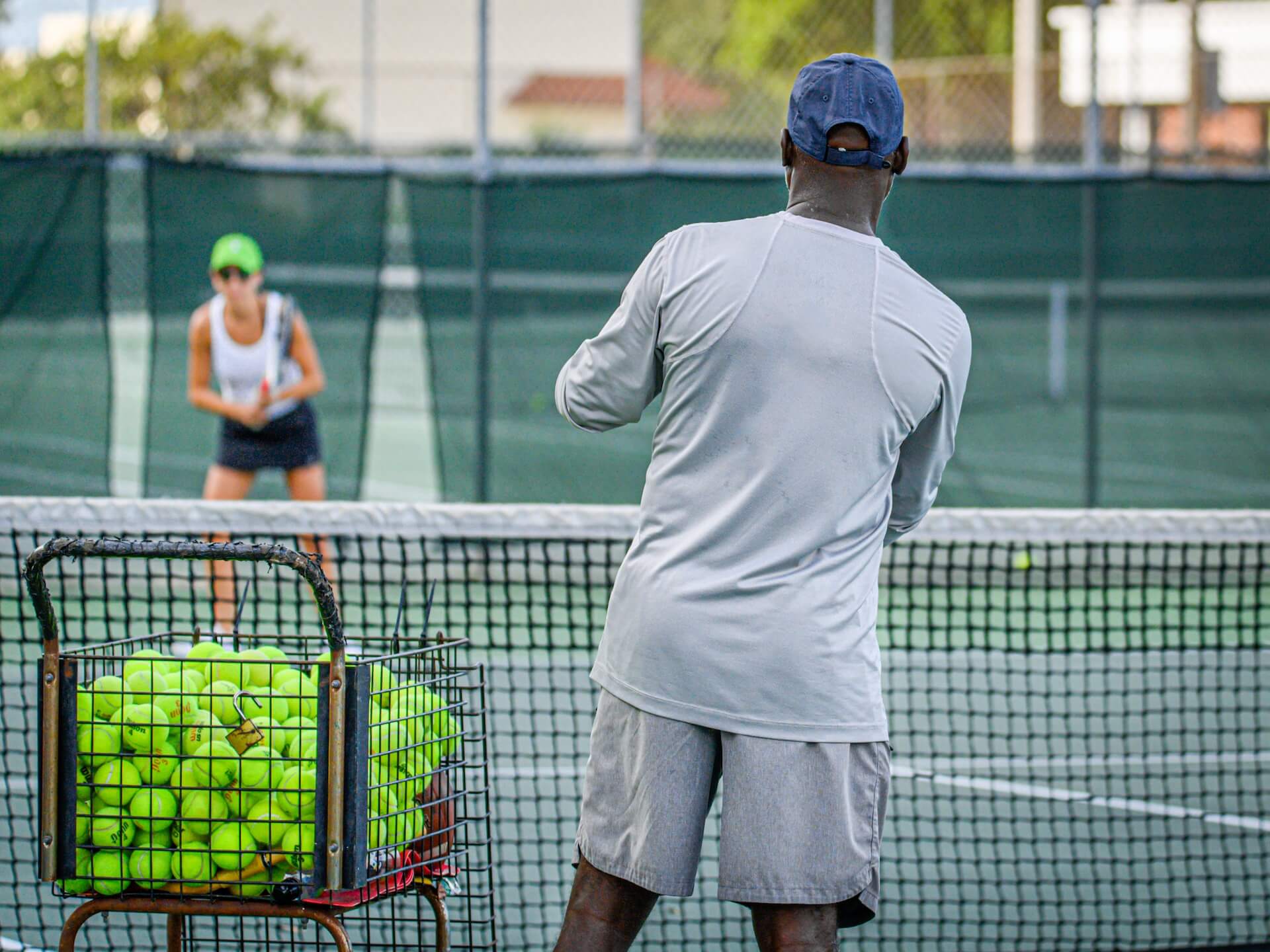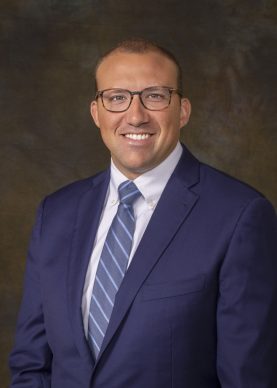Diagnosis and Treatment of Cervical Radiculopathy (Pinched Nerves) in Wake County

What is Cervical Radiculopathy?
Cervical radiculopathy, also known as a “pinched nerve,” occurs when a nerve root in the cervical spine becomes inflamed or damaged, resulting in a change in neurological function. This may cause pain that radiates anywhere from the neck into the shoulder, arm, hand, or fingers. Pain is usually accompanied by muscle weakness, numbness, and altered reflexes. In most cases, cervical radiculopathy is caused by wear and tear that happens in the spine as we age, such as arthritis. In younger people, it is more often caused by a sudden injury that results in a herniated disc.

What Causes Cervical Radiculopathy?
Cervical radiculopathy usually arises due to degenerative changes in the spine, either from age or an injury that causes a herniated or bulging, intervertebral disc.
Degenerative Changes
As the discs in your spine age, they lose height and water content which causes them to bulge, dry out, and become stiffer. This can lead the disc spaces to collapse and the vertebrae to move closer together. In response, your body forms more bone – called bone spurs – around the disc to strengthen it. Bone spurs contribute to the stiffening of the spine as well as narrowing the foramen and pinching the nerve. Degenerative changes are often referred to as arthritis or spondylosis. In fact, nearly half of all people middle-aged or older have worn-out discs or pinched nerves that do not cause painful symptoms.
Herniated Discs
When the jelly-like center (nucleus) of a disc pushes against the outer ring (annulus) it is considered to be herniated. If the disc is significantly injured, the nucleus may squeeze all the way through the annulus. When the herniated disc pushes out toward the spinal canal, it puts immense pressure on the sensitive nerve root, therefore causing pain and weakness in the area supplied by the nerve. Herniated discs can result from forceful lifting, bending, twisting, or pulling movements.
Other less common causes of cervical radiculopathy include fractures, tumors, infections, or sarcoidosis, a rare disease that can cause granulomas (lumps) to grow on any organ in the body.
Cervical Radiculopathy Risk Factors
Some factors may increase your risk of developing cervical radiculopathy, including:
- Age: the risk for cervical radiculopathy tends to increase with age; this risk peaks in a person’s 40s or 50s
- Strenuous physical activities: activities that put high levels of stress on the cervical spine, such as wrestling or weight-lifting
- Repeated neck motions or vibrations: the use of vibrating equipment like driving a truck or repeatedly diving head first off of a diving board
Symptoms of a Pinched Nerve in the Neck
Pain associated with cervical radiculopathy typically starts at the neck and travels down the arm to the area served by the damaged nerve. Signs and symptoms are most commonly experienced on one side of the body, but may progress to both sides. Symptoms of cervical radiculopathy to look out for include:
- “Pins-and-needles” sensation or tingling
- Weakness in the arm, shoulder, or hand
- Loss of sensation
If neurological deficits become severe, they can reduce a person’s ability to perform common daily tasks, such as lifting or gripping objects, writing, typing, or getting dressed. If your symptoms are getting progressively worse, visit one of our urgent care centers near you for immediate medical attention.
How is Cervical Radiculopathy Diagnosed?
The process of diagnosing cervical radiculopathy involves a physical examination and review of the patient’s medical history. Your Raleigh Orthopaedic spine specialist will ask questions about your symptoms and then examine your neck, shoulders, arms, and hands. They might also ask you to perform certain neck and arm exercises to try to recreate and/or relieve your symptoms. Further assessment using imaging tests such as X-rays, MRIs, EMGs, and CT scans may be necessary to obtain more detailed information about your condition.

Treatment for Cervical Radiculopathy in Wake County
There is a wide range of treatment options available for cervical radiculopathy. The majority of patients with this condition do not need extensive treatment, as their symptoms tend to improve over time. For some, the pain goes away relatively quickly – within a few days or weeks. For others, the healing process may take longer. In cases where cervical radiculopathy does not improve, non-surgical treatment options or surgery can help.
Initial treatment for cervical radiculopathy is non-surgical. These treatments usually include one or more of the following:
- Rest or activity modification
- Ice and/or heat therapy
- Medications
- Nonsteroidal anti-inflammatory drugs (NSAIDs)
- Oral corticosteroids
- Soft cervical collar
- Physical therapy
- Steroid injection
- Narcotics
If non-surgical treatments do not provide pain relief, or if neurological symptoms such as numbness and weakness continue to progress, your doctor may consider surgery. There are several surgical procedures to treat cervical radiculopathy, such as anterior cervical discectomy and fusion or artificial disc replacement. The type of procedure you undergo will depend on various factors including the symptoms you are experiencing and the location of the affected nerve root.

How Long is Recovery from Surgery for Cervical Radiculopathy?
After surgery to treat cervical radiculopathy, you may need to stay in the hospital, depending on the type of surgery required. Many patients are able to eat and walk on the first day after surgery, but it is normal to have difficulty swallowing for a few weeks. It can take between six months and one year for the affected area to fully heal. Four to six weeks into recovery, your doctor may recommend a personalized physical therapy routine to strengthen the muscles.
Can I Prevent Cervical Radiculopathy?
In many cases, cervical radiculopathy cannot be prevented. However, there are lifestyle changes you can make that may reduce your risk of developing cervical radiculopathy. It is important to maintain a healthy weight and stay physically fit so there is less stress being put on your spine and neck. Promoting good posture is also necessary when exercising or playing sports to prevent injuries.

Cervical Radiculopathy Treatment in Wake County at Raleigh Orthopaedic
Raleigh Orthopaedic Clinic has neck and back specialists available at all of our locations throughout Wake County. If you have cervical radiculopathy and want to speak with an orthopedic doctor about your symptoms and treatment options, our team has the knowledge and expertise needed to get your orthopedic health back on track. We strive to provide each patient with comprehensive and compassionate care through high-quality spinal services in the Triangle area. Book online or contact us today to schedule an appointment at one of our locations near you.

